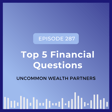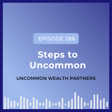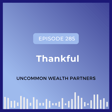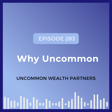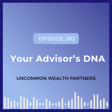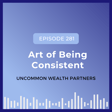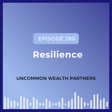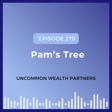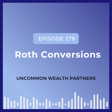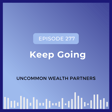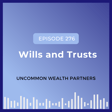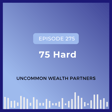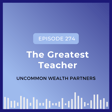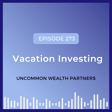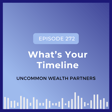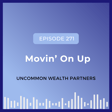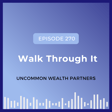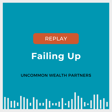
Designed to Move: Interview with Abbi Rickelman
About the Guest(s):
In this engaging episode of the Uncommon Wealth Podcast, host Phillip Ramsey welcomes Abbi Rickelman of Designed to Move to the studio. They chat about the journey from being a chiropractic student to running a successful holistic practice. Abbi shares her experiences of transitioning into the business world, drawing inspiration from her father's entrepreneurial spirit. Listeners gain insight into the challenges and victories faced in building Designed to Move, a clinic known for its unique approach and extended appointments that cater to the individual needs of each patient.
Throughout the episode, Abbi elaborates on the dynamics of running a business with her husband and the importance of maintaining client relationships while scaling the business. She discusses the lessons learned from unexpected challenges like audits and finding the ideal location for their practice. The conversation also delves into how Abbi and her team plan to scale their operations sustainably without compromising the quality of care. This episode offers valuable insights for aspiring entrepreneurs and business owners on balancing professional growth with personal well-being and client satisfaction.
Key Takeaways:
- Designed to Move offers a unique chiropractic approach with a focus on personalized, holistic healthcare solutions, which include longer patient interactions and a variety of treatments.
- Abbi emphasizes the significance of listening to and understanding clients, which has led to the organic growth of their business largely through referrals.
- The transition to business ownership taught Abbi the importance of balancing business processes with quality client care and personal life.
- Although challenging, the decision to reconsider moving to a new building exemplified the importance of flexibility and trusting one’s instincts in business decisions.
- Honest reflections on personal ambition revealed that true fulfillment comes from serving others and glorifying one's values over mere success.
Notable Quotes:
- "In business ownership, you think that it's gonna be like rainbows and butterflies, and you just have, like, all this time off…"
- "I mean, literally, not two nights ago, Aaron was doing paperwork until 11:30 at night."
- "The older I've gotten, the more I've realized… success isn't really where it's at. Like chasing the wind."
- "I love our practice model. It's uncommon. Imagine that."
- "You can't grow unless you're working on your business."

